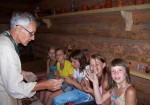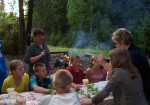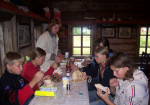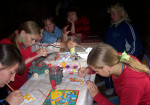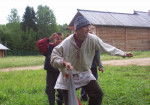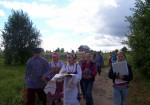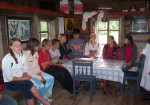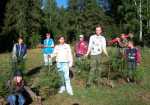Open Heart
Problem statement
The society level of development in many respects is defined by the relation to socially unprotected segments of the population, such as, for example, orphan children.
According to the Ministry of Education and the Russian Children's Fund, today in Russia more orphans, than in any other country of the world are the share of each 10000 children. In 2002 the number of orphan children made 683700 that is 257% more, than in 1990. In the country of 2176 boarding schools, orphanages and other places in which children without parental support live are several times more, than 10 years ago. Fifty percent (about 18 million) of the Russian children are potentially subject to risk of a social orphanhood or ill treatment. It is connected with the high level of alcoholism, drug addiction, incidence and poverty among the population – a consequence of long-term economic and social instability.
Economic and social consequences of that in Russia the whole generation of socially unadapted children already grew, are huge: having matured, many of them get to prisons, don't work or work unproductively because of a drinking habit and to drugs, appear patients of psychiatric hospitals and other medical institutions, become criminals.
The statistics shows that 40% of graduates of establishments for orphan children have alcoholism or drug addiction, 40% join underworld ranks, 10% commit suicide. Only 10% of pupils of orphanages adapt for normal life in society.
Project purposes
1. Social adaptation of orphan children through familiarizing with traditional national culture, participation in ecological programs, rendering the active help within projects of the Architectural and Ethnographic Museum of the Vologda Region (AEMVR).
2. Development of the identity of orphan children on the basis of cross-cultural communication.
Project tasks
1. Awakening of interest of orphan children in history of the native land, to traditional national crafts, folklore of the Russian North.
2. Ecological education of children.
3. Development of communicative skills, feelings of social acceptance at orphan children.
4. Acquaintance to cultures of other countries.
Methods (the events held during the project)
1. The organization of training programs for orphan children in AEMVO territory.
Subject:
- study of local lore
- potter's craft
- woodcarving
- art list
- ecology
- folklore
2. Involvement of orphan children to participation in the AEMVO projects (improvement усадьб, wood clearing, interactive programs).
3. Participation of children of orphans in programs of cultural exchanges with the European countries within cooperation with the European museums open-air.


